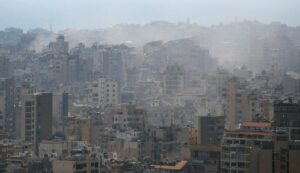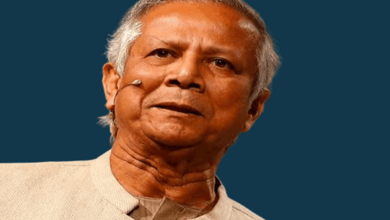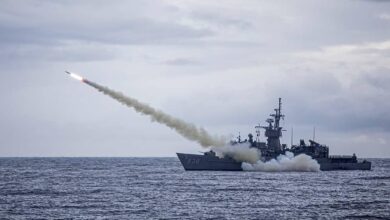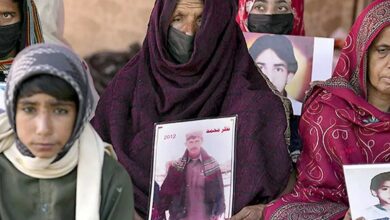Israel carried out dozens of attacks on Hezbollah targets in Lebanon on Wednesday
Lebanon: On Wednesday, Israel launched many attacks on Hezbollah sites in Lebanon, resulting in the death of the mayor of the city, the collapse of structures, and extensive damage in a number of southern regions.
The most recent discussions took place while Israel was coming under growing international criticism over the worsening humanitarian situation in Gaza and the injuries sustained by UN forces in Lebanon.

The Israeli military said that its airplanes had hit many Hezbollah sites in the southern Lebanese city of Nabatiyeh, which is home to the terrorist organization supported by Iran and its partner Amal.
According to Lebanon’s health ministry, two municipal buildings were struck, resulting in 16 fatalities and 52 injuries. Other hits resulted in the deaths of at least six people, according to reports and authorities.
A local official told AFP that the mayor of Nabatiyeh was one of the deceased and that the strikes “formed a kind of belt of fire.”
Israel “deliberately targeted a municipal council meeting that was discussing the city’s services and relief situation,” according to Prime Minister Najib Mikati.
In the southern Lebanese town of Qana, where Israeli attacks on Tuesday killed three people, rescuers also had to dig under debris, according to the Lebanese government.
Israel’s military said in a statement that Jalal Mustafa Hariri, the chief of Hezbollah in the Qana region, had been “eliminated.”
Three people were killed by Israeli bombardment in the Tayr Debba district near Tyre, according to the health ministry, which was cited by the news agency ANI.
South Beirut was struck
Israeli aircraft also struck Hezbollah’s main base in the southern suburbs of Beirut; further strikes were reported in the southern part of Lebanon and in the eastern Bekaa area.
The town of Safed in northern Israel was the target of Hezbollah’s third missile strike in a 24-hour period.
The organization said on Thursday that, after tight fighting with Israelis conducting incursions in the region, it had destroyed another Israeli tank close to the Lebanese border with a “guided missile.”
Approximately ninety Hezbollah “projectiles” entered Israel on Wednesday, according to the Israeli military.
Israel increased its shelling in late September and crossed the Lebanese border with ground forces before the end of the month.
An AFP count of Lebanese health ministry numbers indicates that at least 1,373 people have died in Lebanon as a result of the conflict, but the actual death toll is probably higher.
Hezbollah, which is supported by Iran, began launching light attacks against Israel in October of last year in order to aid Hamas, after the latter’s assault on October 7 that set off the Gaza War.
Israel expanded its military operations into Lebanon after Hamas was debilitated, promising to fight until tens of thousands of Israelis who had been forced to flee their homes due to Hezbollah’s bombardment could return.
On Tuesday, requests for a unilateral ceasefire were rejected by Prime Minister Benjamin Netanyahu, who said that it would “not change the security situation.”
Applying pressure to Israel
Israel’s primary ally, the United States, has joined the chorus of condemnation directed against the government over its bombings in Lebanon.
“We have told Israel directly that we oppose any Israeli campaign… of near-daily strikes in densely populated areas of Beirut,” White House press secretary Karine Jean-Pierre said on Wednesday, echoing Washington’s criticism.
She said that the US has instructed Israel to “not threaten the lives of civilians,” UN troops, or the Lebanese military during its operations.
“Maximum political and diplomatic pressure on Israel” was demanded by sixteen European Union defense ministers in order to avoid further incidents involving peacekeepers.
The UNIFIL peacekeeping force said that Israeli soldiers were “firing at their watchtower” in the most recent incident in a “direct and apparently deliberate” way.
Later, the Israeli military reaffirmed that it was not going after UN personnel.
According to a statement, it is “conducting operational activity against the terrorist organization Hezbollah.”
“UNIFIL troops and infrastructure locations are not targets, and any unusual occurrence will be carefully investigated. The event in question is being investigated.
Additionally, on Wednesday, the Lebanese Red Cross said that while a rescue operation coordinated with UN forces was in progress, two paramedics were injured in an Israeli hit on a community in south Lebanon.
Furthermore, the World Health Organization confirmed a case of the potentially fatal virus this week and issued a warning that there is a “very high” chance of cholera spreading among displaced persons in Lebanon.
Gaza hunger is a “real risk.”
International criticism of Israel has been leveled at the amount of assistance that is reaching Gaza, which is plagued by famine.
Washington warned Israel in a letter issued on Sunday that unless additional humanitarian help was provided, it will stop supplying weaponry.
There was “a real risk” of starvation, the UN agency for Palestinian refugees issued a warning about on Wednesday.
According to UNRWA head Philippe Lazzarini, Gaza has “become a kind of wasteland, which I would say is almost unliveable.”
Israeli troops have been conducting extensive air and ground operations in northern Gaza and the Jabalia region for more than a week, ostensibly to disrupt Hamas fighters’ gathering there.
Israeli attacks on Jabalia claimed ten family members for forty-year-old Nidal al-Arab.
Individuals are imprisoned. He told AFP that “if they don’t die from shelling, they will soon die from hunger and thirst.”
More than 200,000 Palestinians, according to Ahmed al-Kahlout, the leader of the civil defense organization in northern Gaza, have been “deprived of food aid for the 12th consecutive day, as well as potable water.”
Following the October 7 Hamas onslaught, which killed 1,206 Israelis, largely civilians (including hostages who died in captivity), an AFP count of official Israeli numbers shows that Israel initiated a military operation in Gaza.
42,409 individuals have died as a result of the Israeli assault; most of them were civilians, according to numbers deemed trustworthy by the UN from the health ministry in the zone controlled by Hamas.
A nuclear facility explosion is “unlikely.”
The area is ready for Israel to exact the revenge it has pledged against Iran, its longtime enemy, for firing almost 200 missiles toward Israel on October 1.
Iran claimed that the bombing was a reprisal for an Israeli strike in Beirut that claimed the lives of Iranian commander Abbas Nilforoushan and Hezbollah leader Hassan Nasrallah.
Iran said on Wednesday that it could promptly repair any harm and that an Israeli strike on its nuclear plants was “very unlikely.”





